How the The Resolution Framework™ Works
Putting the framework into practice

Redefining Resolution.
Traditional HR policies and management procedures such as grievance, bullying, discipline, whistleblowing and performance management don’t resolve issues; they make them worse, much worse. These antiquated and broken systems are driven by a focus on blame, punishment, fear and division. TCM’s trademark Resolution Framework™ is different. It is a legally compliant system for resolving serious and complex workplace issues. It has been adopted by organisations as varied as The BBC, Capgemini, The Institute of Leadership, KPMG, HSBC, NEXT, Aviva, TSB Bank, plus numerous universities, police forces, charities, councils and health & social care organisations.
Since 2001, we’ve been reframing the way that organisations respond to a full range of issues, with a focus on the restorative principles of mediation. While offering favourable outcomes in the majority of cases, we realised that such processes were very limited when sitting within traditional HR policies and procedures.
In recognition of a widespread need for change, in 2013, our CEO and Founder David Liddle developed and launched our ground-breaking Resolution Policy™. Now an all-encompassing framework, it serves to divert the majority of workplace complaints, concerns and conflicts away from traditional HR processes and procedures. Early resolution methods such as mediation are instead used, focusing at tackling the underlying cause of such issues.

A comprehensive and thought-provoking 2 day course, delivered by credible and experienced trainers who use a fantastic selection of methodologies and easy to access techniques to bring the subject and approach to life.
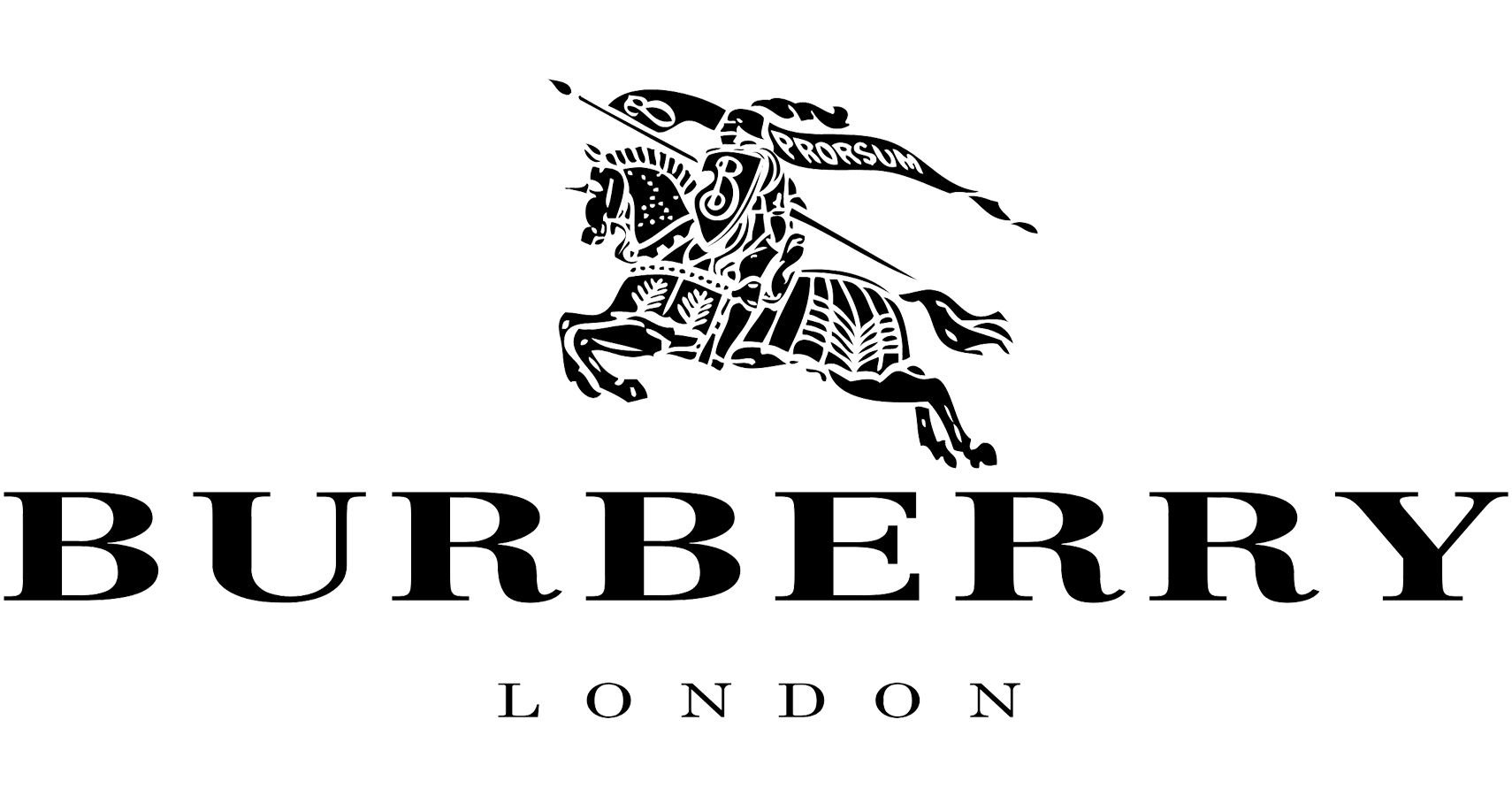
“Partnering with TCM has really helped us to think creatively about how we can create a human-centric approach to speaking up at Burberry, ensuring we maintain a culture of psychological safety when dealing with conflict.”
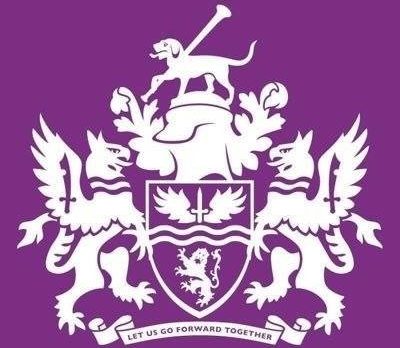
“TCM’s approach to resolution has been ground breaking from the off and has helped us at Hounslow to think differently. The Resolution Framework [pushes us] to really think about how we can deal with conflict in a way that allows our people to feel heard, respected and to remain engaged.”
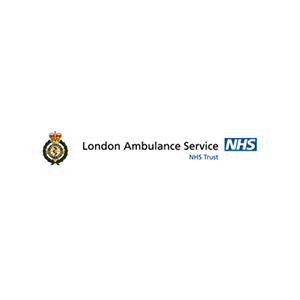
“A lot of policies forget that there’s a person at the end of each process. Treating people with respect is second nature to us as a team, and our procedures needed to reflect that. Having somebody there like TCM that’s leading the way, making those steps for us to bring ideas to life has been the key to organisational success.”
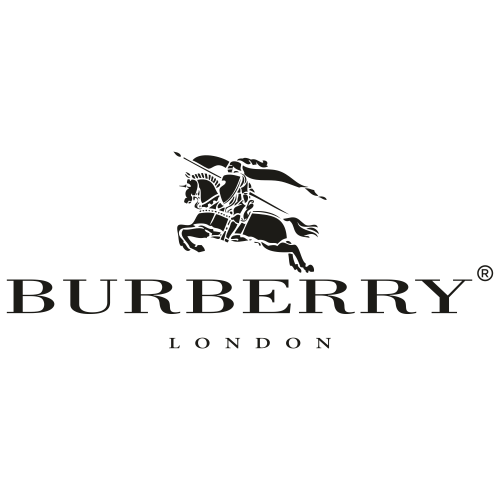
“Cases were not getting resolved quickly and this was causing distress for both staff and managers. We recognised there had to be a better way of us having more mature conversations and giving our staff the opportunity to reflect, look at different choices they could have made and actually learn from the issue rather than just having an adversarial conversation.”

“We know that conflict is unavoidable, but we know that when it’s handled well, it can be a driver for positive change. In fact, we strongly believe that that positive and constructive conflict can fuel our creativity. And as a creative business, creativity is at the core of everything we do. That’s what excites us about implementing a Resolution Framework – it’s an opportunity for us to reframe the conversations that we’re having about conflict across the business. It gives our leaders the tools and the space that they need to be able to resolve those issues early, informally and constructively. The TCM approach – and this is important – aligns with our purpose, creates space for people to engage in constructive dialogue, and provides the ability to facilitate open and honest adult-to-adult conversations.”
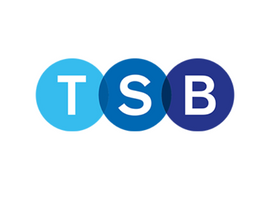
“After seeing the damage caused by traditional procedures, we got wind that a lot of organisations were introducing alternative dispute resolution frameworks. We were cognisant that our grievance process was acting as a counterculture to the people-led values we upheld as a bank. TCM’s Resolution Framework was right for us to undergo this cultural journey. The people and culture function has changed from the authoritarian arm of management to a true strategic partner of the business and its people.”
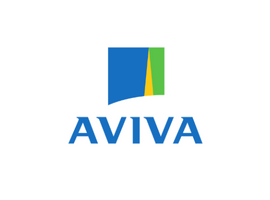
“We wanted to flip the traditional procedural mechanisms on their head. We wanted to create policies that empowered, invited and encouraged people to display the behaviours that we wanted within our organisation.”

“I undertook the TCM training for both Routes to Resolution and Mediation. I have found the course to be very informative, the trainer delivered the content in a good pace, and allowed just the right amount of time for breaks. The breakout sessions were useful and fun exercises to really get everyone thinking. I’ve certainly learned lots of new things which I’ll take away with me and put into practice as an HR professional.”

“The formulas and models were very helpful, and will support our people to make sure we truly understand what our needs are and how to overcome challenges in a practical and sustainable way. Personally, I’ll utilise my learnings to be able to flex my approach to best suit the situation and parties involved. The training was really practical, which will be a real value add in working life.”
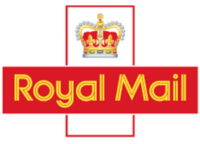
“TCM has supported us to deliver our policy to resolve issues and establish a culture of fairness, trust and mutual respect. It is no surprise that in a business which employs so many people, there will be disagreements from time to time. TCM has helped us to establish a modern system for resolving these disagreements quickly and professionally.”
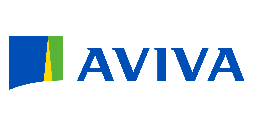
“Couldn’t fault the service provided by David and the team in helping us set up an internal resolution procedure and mediation team. We had fantastic feedback from all our colleagues who attended training with them.”
The Benefits
The Resolution Framework™ is fully available on an opensource **FREE** basis. It aligns your HR policies and management systems to your organisational purpose and values. It allows for a more timely, constructive resolution of issues, much closer to their source. Our customers commonly report the following benefits, after undergoing such a change:
- Relationships are preserved, allowing for improved performance, reputation and competitive advantage
- A culture of cooperation and collaboration can be engendered across your organisation
- Access is provided to a full range of proven remedies, ranging from mediation to restorative justice and team facilitation
- The stress and uncertainty associated with traditional approaches is greatly reduced
- Managers are provided with the tools to spot issues early, and respond appropriately
- Customer experience is also improved, thanks to valued and engaged employees
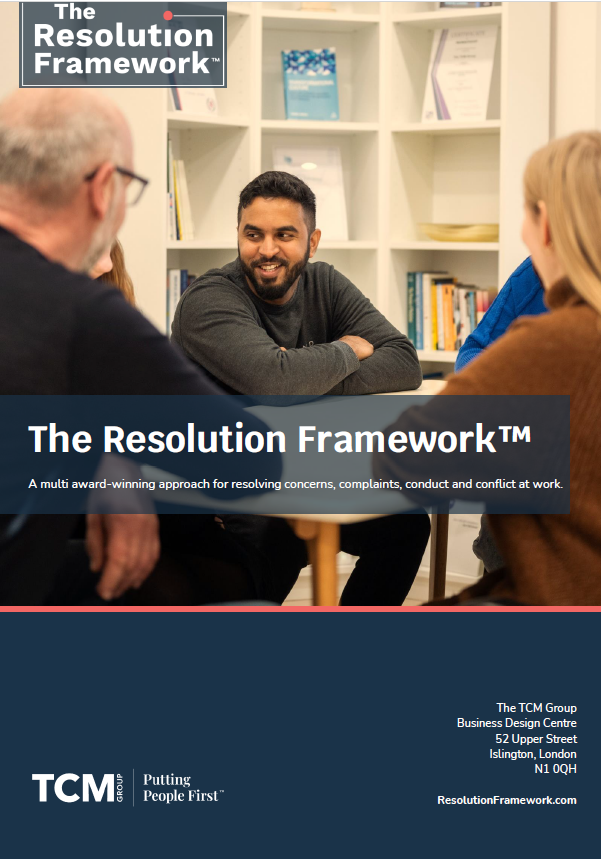
How does the Resolution Framework™ work?
In its very simplest terms, the following key steps will occur, in response to complaints, concerns and conflicts, under The Resolution Framework™:
First of all, it is the responsibility of local managers to attempt to resolve the situation, as early and constructively as possible. This will usually take the form of an early resolution meeting. No further action is required, if this generates a successful resolution.
Where early resolution methods are successful, a Request for Resolution is submitted to the Resolution Centre/Unit. This group of trained staff will make an assessment of the case against the Resolution Index: a set of predetermined criteria, to determine its severity.
Most cases will be well suited for one of a number of early resolution methods. Available options include facilitated conversations, mediation, team facilitation and coaching. Each is best suited to a particular kind of conflict, and its relative complexity/severity.
For the higher scoring cases, a formal resolution process remains an essential response. This begins with an investigation and disciplinary sanctions remain in place, up to and including dismissal, based on the outcome of the process.
Trending:

The Resolution Revolution: putting people before process.

Resolution Framework Enquiry
One of our team will be in touch to discuss your requirements with you.












